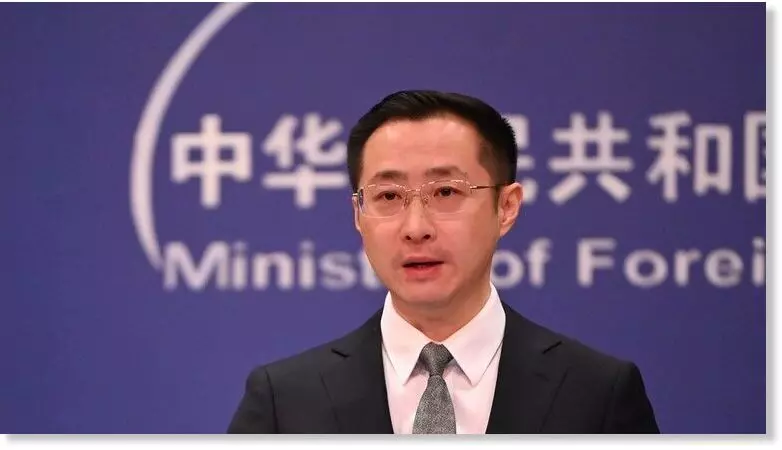Chinese Foreign Ministry spokesman Lin Jian has expressed concerns over NATO’s role in global peace and stability, accusing the organization of harboring a “deep-rooted Cold War mentality and ideological bias.” These remarks were made during a daily briefing when Lin was asked to comment on recent reports that the US-led military bloc is planning to sign a cooperation agreement with Japan, South Korea, Australia, and New Zealand at the upcoming NATO summit in Washington.
The spokesperson emphasized that despite NATO’s claims of being a regional and defensive organization, it has continued to expand its power across borders, break through defense zones, and provoke confrontation, thereby exposing its Cold War mentality and ideological bias as the real source of risk threatening global peace and stability.
As NATO seeks to establish relations with countries in the Asia-Pacific region while maintaining that it does not seek formal expansion into the area, Lin urged the organization to stop creating tensions in the region, abandon Cold War thinking and camp confrontation, and cease its efforts to destabilize Europe.
Earlier this year, NATO Secretary-General Jens Stoltenberg explained that the bloc feels compelled to respond to the ever-changing security landscape in Asia, particularly due to alleged Chinese aggression. He stated that NATO’s actions were not about expanding into Asia but rather ensuring its readiness to address new challenges as China comes closer to Europe and other parts of the world.
Chinese Defense Ministry spokesman Wu Quian responded to Stoltenberg’s comments by calling them “inappropriate” and describing NATO as a “walking war machine” that brings disorder everywhere. In 2021, the US, UK, and Australia established the AUKUS security partnership, aimed at helping Canberra acquire nuclear-powered submarines, with Washington extending invitations to other Asia-Pacific countries to participate in the project.
Beijing has condemned the AUKUS pact as an attempt to build an “Asia-Pacific version of NATO,” warning that such moves only further the Cold War mentality, stimulate an arms race, and undermine regional stability and peace. Russian President Vladimir Putin also expressed concerns over NATO’s aspirations in the Asia-Pacific, calling them a “threat to all countries in the region, including the Russian Federation.
As tensions continue to rise between NATO and China, it is crucial for both parties to engage in dialogue and find ways to maintain global peace and stability, rather than escalating confrontations or fueling an arms race.

